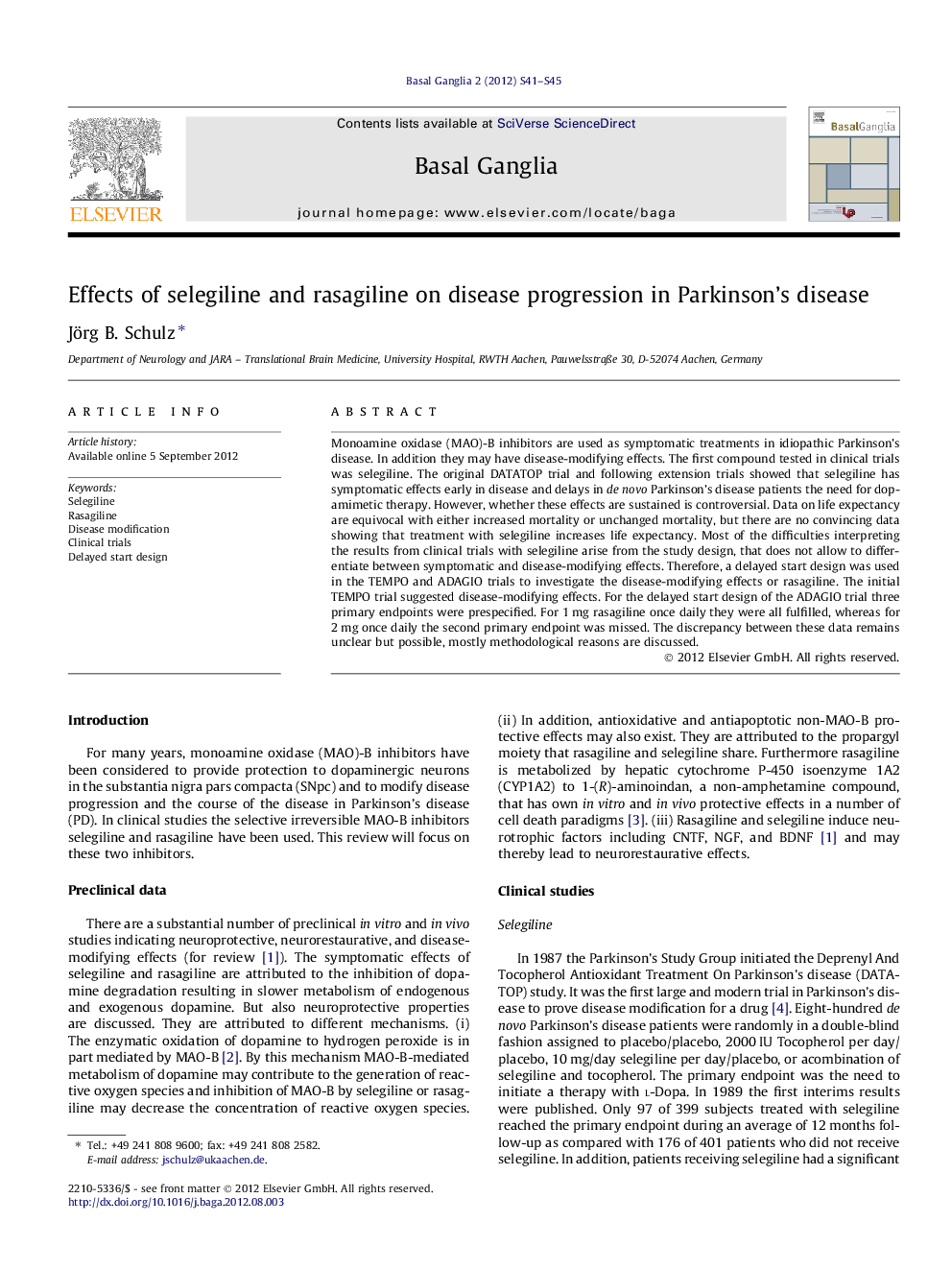| Article ID | Journal | Published Year | Pages | File Type |
|---|---|---|---|---|
| 3036238 | Basal Ganglia | 2012 | 5 Pages |
Monoamine oxidase (MAO)-B inhibitors are used as symptomatic treatments in idiopathic Parkinson’s disease. In addition they may have disease-modifying effects. The first compound tested in clinical trials was selegiline. The original DATATOP trial and following extension trials showed that selegiline has symptomatic effects early in disease and delays in de novo Parkinson’s disease patients the need for dopamimetic therapy. However, whether these effects are sustained is controversial. Data on life expectancy are equivocal with either increased mortality or unchanged mortality, but there are no convincing data showing that treatment with selegiline increases life expectancy. Most of the difficulties interpreting the results from clinical trials with selegiline arise from the study design, that does not allow to differentiate between symptomatic and disease-modifying effects. Therefore, a delayed start design was used in the TEMPO and ADAGIO trials to investigate the disease-modifying effects or rasagiline. The initial TEMPO trial suggested disease-modifying effects. For the delayed start design of the ADAGIO trial three primary endpoints were prespecified. For 1 mg rasagiline once daily they were all fulfilled, whereas for 2 mg once daily the second primary endpoint was missed. The discrepancy between these data remains unclear but possible, mostly methodological reasons are discussed.
